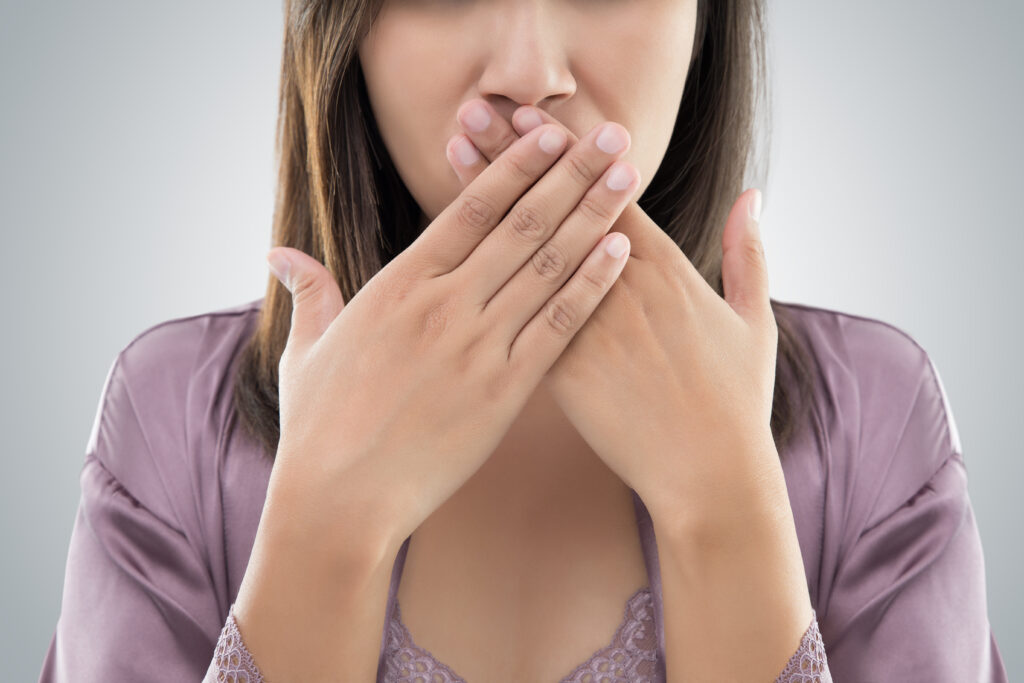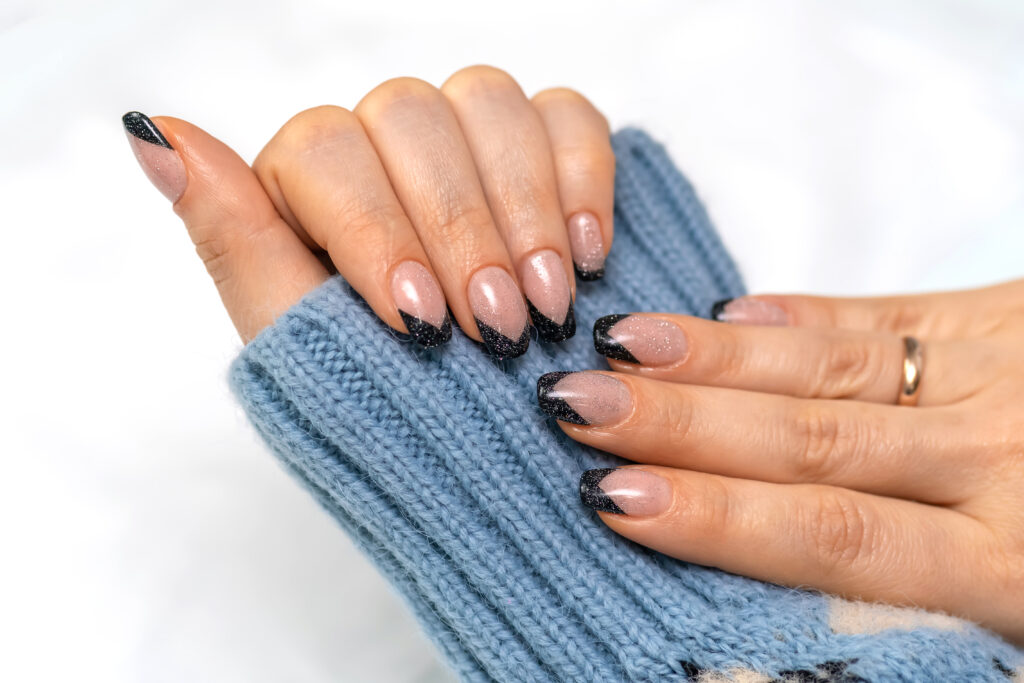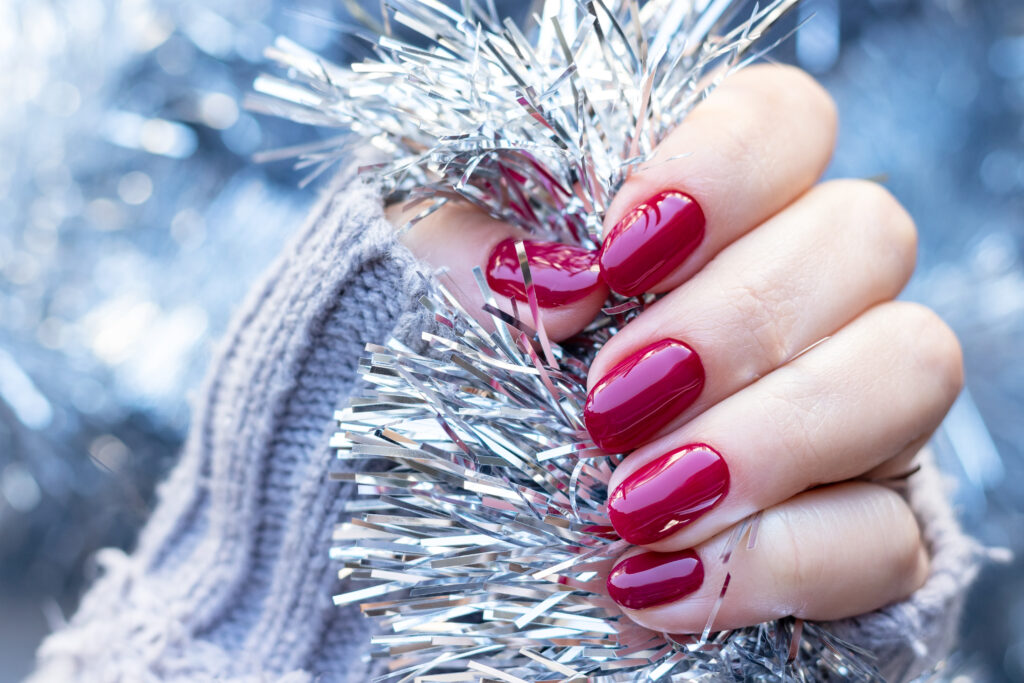How do you keep fingernails healthy in winter? The winter months can be hard on our nails, hair, and skin and it’s therefore important to follow a routine. Here is a list of 12 easy tips to follow for healthier nails during the winter.

The best way to keep fingernails healthy in the winter is by eating nutritious food and using hand cream and cuticle oil. Avoid chemical-filled soaps and detergents that can dry out your hands and nails.
Why Are My Nails So Brittle In Winter?
Your integumentary system is essentially the outer layer of your body and is made up of your skin, nails, and hair, as well as the glands and nerves of your skin.
It’s what protects you from harm caused by environmental factors like bacteria or even sunlight. But it also helps to regulate your body temperature.
In periods of seasonal change, your integumentary system is under more strain to keep your body in balance.
As a result, it may divert essential nutrients and vitamins away from extremities like your nails in order to support the working of more vital bodily systems. The result? Dry, brittle, easily breakable nails.
This can be compounded by winter weather. Exposure to dry, cold weather will dry out the nails (and skin and hair) and can cause them to flake or peel. They may also become very dry and brittle.
Also, if you live in an area where winters are very cold and dry, then this dryness will exacerbate the effect of the elements and may cause even greater dehydration in the nails, skin, and hair.
If your nails are brittle all year-round, you may have a more serious condition, such as anemia caused by lack of iron, or even more significant issues such as thyroid imbalances or diabetes.
It’s essential to consult with a physician if you’re concerned that your brittle nails may indicate a wider problem.
12 Ways To Keep Finger Nails Healthy In Winter

1. Keep your hands moisturized
In the winter months, hand lotion is your best friend. Use it after handwashing to replace any lost moisture, and opt for a thick lotion just before bed.
You could even pair it with moisture gloves in order to lock in that moisture.
However, try to steer clear of overly-fragranced creams. These can often contain synthetic scents and other chemicals, and may actually be drying your hands out further.
You could even make an all-natural nail mask from honey and egg, if you want to condition and nourish your nails.
2. Care for your cuticles
Integrate cuticle oil into your regular nail care. This will ensure your nails grow healthy, but will also protect your existing cuticles.
Plus, if you’re prone to anxiously biting your cuticles, this will help you to avoid doing so.
Avoid cutting your cuticles with nail scissors. Use a tool to push your cuticles back, rather than hacking at them with scissors.
Your cuticles are actually responsible for the healthy growth of your natural nails and guard against infection. So take care of them, particularly in the winter months.
3. No peeling of polish
We know, that when your nail polish is flaking or chipping, it can be tempting to just peel the whole thing off.
But please don’t! Doing so often brings a thin layer of the nail off, too, which will only cause damage and dehydration.
Use a nail polish remover and then re-paint the nail so that it looks good as new (don’t forget your base and top coat).
4. Wear polish
Speaking of nail polish, if you can wear nail polish semi-regularly, this may provide an extra layer of protection for your nails in the winter months, particularly if you use a base and top coat.
Wearing polish should also prevent nail biters from doing their worst, which is a habit that combines with winter weather to cause serious nail harm.
Similarly, it provides a protective layer against the damage that water can cause. When you’re engaging in excessive handwashing in the winter months, your nails might absorb some of this excess water.
This can cause them to dehydrate, as natural oils will dissipate, which will result in breakage.
Remember though, it’s about balance – you should also give your nails a break from wearing polish. Or look for formulas with minimal chemicals, so as to prevent exposure to potential irritants.
5. Avoid acetone nail polish remover
Acetone is not your nail’s best friend. Acetone is a useful component of nail polish remover as it can strip polish from the nail surface super swiftly, but it’s also incredibly drying.
Opt for an acetone-free nail polish remover in the winter months, as this will be more gentle and help to minimize breakage and brittleness.
6. Wear gloves
Grab yourself some fluffy mittens and wear them whenever you’re headed out into the elements. Putting a barrier between your skin and the cold can really help to protect your nails from breaking unnecessarily.
You can also wear washing-up gloves when performing household chores. Avoid exposing your fingers and nails to detergent, which can be excessively drying.
7. Go gently with an emery board
It’s helpful to file your nails regularly in winter, as they won’t get snagged in woolly scarves and hats, which might cause hangnails and breakage.
Plus, regular maintenance of your nail length can actually promote their growth. It’s very similar to the way that a haircut can help with hair growth.
But be gentle with your nail file or emery board – avoid any sawing motions, and sweep gently from the side of your nails to the center in one direction.
Keep away from metal nail files too, as these are very abrasive and may cause fraying of your nail edges.
8. Keep your nails short
If you can, keep your nails shorter in winter. This will reduce the risk of snags or breaks caused by your nails catching in the fabric. Plus, it means you avoid damaging your favorite silk shirt or cashmere jumper.
If you do get a hangnail, clip it, don’t tear it. If you rip the hangnail off, you’ll cause bleeding and may risk infection. Please don’t bite or tear at either your nails or cuticles, either.
9. Clip and file nails only when wet
When your nails are dry and you’re a little overzealous with the clippers or file, you can cause splitting and fracturing of the protein.
Ensure that your nails are more flexible when you either clip or file them – soak them in warm water or use either tool when you’ve just come out of the shower.
10. Avoid chemical soaps and shampoos
In the winter, we can be conscious of washing our hands often, so as to avoid the spread of germs.
However, harsh soaps and shampoos can cause real dryness for both the nail and skin.
Look for formulas with natural ingredients for both your hand soap and body soap, as well as your shampoo.
11. Use a humidifier
If you experience dry, cold winters, then you could add a humidifier into a few key rooms in your house.
It will add a little moisture to the air, which will help to prevent dryness in your nails, hair, and skin.
12. Eat well
Taking in the vitamins and minerals that you need is essential in winter. Look for foods that contain omega-3 fatty acids, as well as zinc and vitamins like C, E, and A.
Products To Avoid On The Nails During Winter

Nail strengtheners
It may seem like a no-brainer to use a nail strengthener in the winter when your nails need a little extra TLC.
But in fact, nail strengtheners are designed to make your nails more robust and durable.
As such, your nails can become hard. When combined with cold weather, this makes them brittle, and you may experience breakage.
When performing a DIY polish manicure, use a base and top coat instead to add that layer of protection.
Scented lotions and harsh detergents
Overly-fragranced soaps, body washes, and dish soap that contain intensive chemicals are not your nails’ friend.
They will strip your nails of their natural oil and dry them out.
If you must wash your hands with harsh soap, try to carry hand cream around with you to use immediately afterward so as to restore some moisture.
Hand sanitizer with alcohol
Most hand sanitizers contain alcohol as it’s an effective antibacterial and anti-fungal substance. However, it’s also supremely drying.
Try to go for all-natural sanitizers, or counteract its drying effect by using hand cream and cuticle oil.
Too many acrylic manicures
There’s a time and a place for acrylic manicures. They add length to nails and can be shaped as you desire.
However, if you rely on them too much, your natural nails won’t be able to recuperate and grow in strength.
Acrylics may also dry your natural nails out – particularly if they are poorly applied by a bad technician, or if you rip them off.
Does Diet Matter?
Your diet matters in many ways, but it can help to prevent your nails from becoming brittle in winter, too.
You want to choose protein-rich foods like red meat, oily fish, beans, and nuts.
Your nails are made of protein, after all, so supporting them by consuming healthy foods is a great step to ensuring they don’t break.
Supplement this with healthy fats like coconut oil, as well as leafy greens like kale, spinach, and broccoli.
Look for vitamins including B, C, D, and E, as well as zinc. If you’re worried that you don’t get enough in your diet, then you could always investigate supplements, too.
Take care that you’re also drinking enough water – at least six eight-ounce glasses a day is recommended – and that you don’t consume too much caffeine, salt, and sugar.
